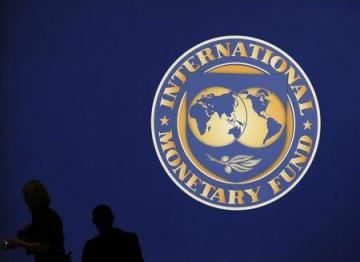IMF recommends floating Sudanese Pound
December 13, 2017 (KHARTOUM) – The International Monetary Fund (IMF) has strongly advised Sudan to float the Sudanese pound stressing it is critical for creating the necessary conditions for attracting investors and promoting economic development.
 The call is included in an annual report on Sudanese economy released this week providing a roadmap for economic recovery after the secession of South Sudan in July 2011. It also comes after the revocation of U.S. sanctions on Sudan opening the door to “strengthen the outlook and boost the payoff from ambitious reforms”.
The call is included in an annual report on Sudanese economy released this week providing a roadmap for economic recovery after the secession of South Sudan in July 2011. It also comes after the revocation of U.S. sanctions on Sudan opening the door to “strengthen the outlook and boost the payoff from ambitious reforms”.
“Directors agreed that exchange rate unification is critical for eliminating the distortions that hamper investment and growth,” said the report which is issued after a visit of IMF delegation to Khartoum.
“Many Directors saw merit in an upfront unification of exchange rates to eliminate multiple currency practices and to bolster the credibility of the authorities’ reform agenda,” the report further said.
On 13 November 2017, Sudan’s Finance Minister Mohamed Osman al-Rikabi denied intentions to float the Sudanese pound. He pointed out that his ministry would take a number of measures to strengthen the price of the pound, stressing that its value would stabilize in the near future.
Several economists, including former Finance Minister Abdel-Rahim Hamdi, recently called on the government to give up the system of managed floating exchange rate and allow the market mechanisms to set the price of the pound. They say the exchange rate unification would allow drawing foreign capital back to the country, improving Sudan’s external competitiveness, supporting exports and attracting foreign investment.
However, the IMF experts stressed that successful exchange rate unification will also require appropriate supportive macroeconomic and structural policies
Accordingly, the report included a policy reform scenario proposing that the “Exchange rates are fully liberalized at the beginning of 2018 and remain unified and market-determined thereafter ”
Once the pound is floated, the IMF says energy and wheat subsidies should be scrapped between 1019 and 2021. However, this tough measures should be accompanied with an increase of the social spending to from 2018 onward to ease the adjustment pain from the reforms.
The Sudanese pound has weakened against the dollar since the lift of economic sanctions last October. The measure increased the demand for dollar in the black market from the business community putting pressure on the meagre hard currency.
The IMF estimates in its report that Sudan’s external debt reached $ 52.4 billion or 111 percent of GDP at end-2016 and, because of the large exchange rate depreciation, rose by 29.5 percent of GDP in 2016.
The international body repeatedly underscored the need to remove Sudan from the U.S. State Sponsors of Terrorism list to benefit from debt relief.
(ST)
